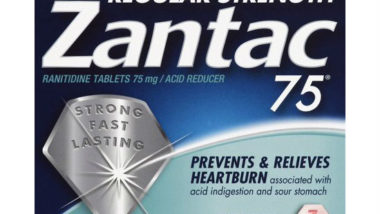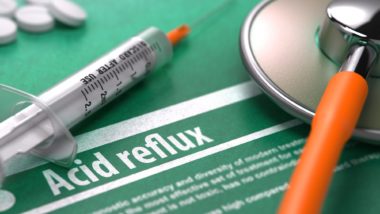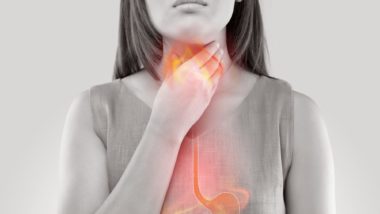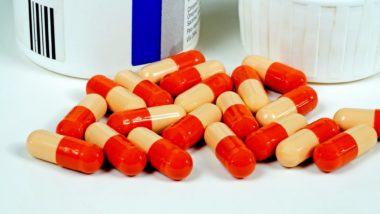
Nexium is a popular heartburn treatment. But a growing number of users are coming forward with allegations of serious side effects, and patients are left wondering: can Nexium cause kidney damage?
If you or a loved one have suffered from kidney damage after using Nexium, you may be able to file a lawsuit and pursue compensation.
Basics of Nexium
Nexium (also known by its generic name, esomeprazole magnesium) belongs to a class of heartburn medications known as proton pump inhibitors or PPIs. According to Center Watch, Nexium is manufactured by AstraZeneca Pharmaceuticals and was approved by the U.S. Food and Drug Administration (FDA) in February 2001.
PPI drugs work to treat gastric conditions by reducing the amount of gastric acid secretion in a person’s stomach. Specifically, according to Science Direct, they inhibit the function of the potassium pump “located on the apical membrane of the gastric parietal cell, inhibiting secretion of H+ into the stomach.”
Millions of Americans take PPI drugs each year—indeed, 10 percent of adults—and Nexium is one of the most widely used options. They have become popular largely because of their superior effectiveness. As compared to H2 blockers, PPI drugs suppress the release of gastric acid for a much greater chunk out of a 24-hour time slot.
Other drugs in this class include lansoprazole (Prevacid), omeprazole (Prilosec), pantoprazole (Protonix), and rabeprazole (Aciphex). Unfortunately, the use of Nexium and other PPI medications has been linked with some serious risks, including kidney damage.
Can Nexium Cause Kidney Damage?
So can Nexium cause kidney damage? A study published by Scientific Reports on Feb. 19, 2019 found that patients taking PPI drugs were more likely to suffer from kidney disease than those who took another kind of heartburn drug, histamine-2 receptor antagonists (H2 blockers).
The PPI and kidney disease study looked at the records of about 43,000 patients taking PPI drugs, and 8,000 patients who took a different kind of medication known as histamine-2 receptor blockers. About 5.6 percent of patients taking PPIs like Nexium reported kidney problems, compared with only 0.7 percent of patients taking H2 blockers.
More specifically, PPI users were 28.4 times more likely to report chronic kidney disease than those taking non-PPI drugs. Reports of end-stage renal disease were 35.5 times more likely in PPI users.
This study is far from the first to connect Nexium and other PPIs with kidney damage. Indeed, a study published in February 2017 in Kidney International found that the use of PPIs is linked with chronic kidney damage that allows their kidney function to decline slowly and almost imperceptibly over time.
For some, Nexium kidney problems can be alleviated by simply being taken off the medication. For others, the renal effects may, unfortunately, be long-lasting or even permanent in nature. Once removed from the medication, it is possible, according to Science Direct, that the patient might experience an overabundance of gastric acid secretion on the rebound. This tendency has been noted in humans, according to the article.
An alternative to treating this overproduction or the underlying reflux issues that moved the patient to seek treatment with PPI drugs in the first place is substitution with the allegedly safer H2 blockers.
H2 blockers include famotidine (Pepcid), Cimetidine (Tagamet), Nizatidine (Axid), and Ranitidine (Zantac). According to WebMD, these heartburn medications trick your stomach into producing less gastric acid by zeroing in on histamine. Histamine is a substance that the body produces to begin to rid itself of potential allergens or things—such as foods or drink to which it is reacting. The end game is the reduction of reflux symptoms.
Other efforts to eliminate or reduce dependence upon PPI treatment may be as simple as adopting lifestyle changes. Excess abdominal fat or generalized obesity can contribute to gastroesophageal reflux disease (GERD), so the first and most helpful suggestion would be to lose weight.
Whether or not weight reduction is attempted, efforts to positively identify and avoid intake of foods and beverages that irritate the gastrointestinal tract can be accomplished by keeping a food journal. Identifying and removing target foods through elimination dieting can be very effective. Additionally, eating a number of small meals rather than the traditional three large ones during the day can reduce the strain on the stomach.
ATTORNEY ADVERTISING
Top Class Actions is a Proud Member of the American Bar Association
LEGAL INFORMATION IS NOT LEGAL ADVICE
Top Class Actions Legal Statement
©2008 – 2026 Top Class Actions® LLC
Various Trademarks held by their respective owners
This website is not intended for viewing or usage by European Union citizens.
ATTORNEY ADVERTISING
Top Class Actions is a Proud Member of the American Bar Association
LEGAL INFORMATION IS NOT LEGAL ADVICE
Top Class Actions Legal Statement
©2008 – 2026 Top Class Actions® LLC
Various Trademarks held by their respective owners
This website is not intended for viewing or usage by European Union citizens.
E-mail any problems with this form to:
[email protected].
Oops! We could not locate your form.












